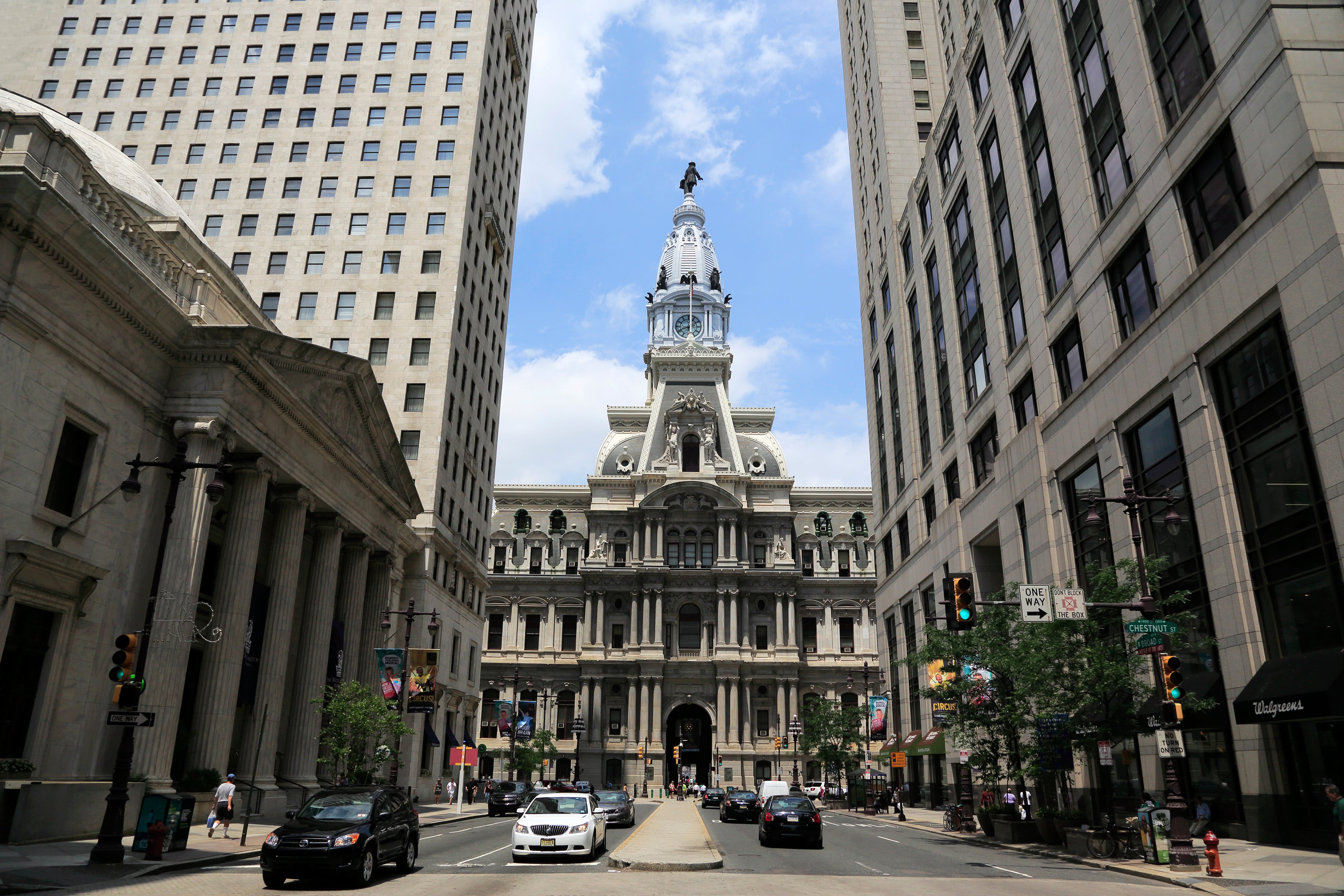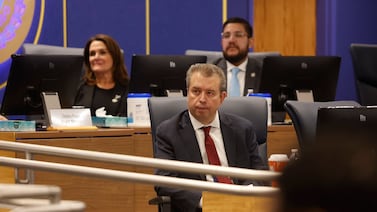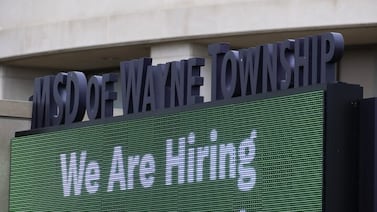Philadelphia officials blasted Superintendent Tony Watlington Monday for not keeping them fully informed about the scope of the asbestos problem in school buildings, and vowed to withhold education funds until they get a more detailed action plan from the district.
“We shouldn’t have to fight, but unfortunately, this is the hand that we’ve been dealt right now,” said Isaiah Thomas, chair of the City Council’s committee on children and youth, during a press conference attended by city, state, and teachers union officials.
Thomas’ remarks came after Building 21, a small high school located in a 100-year-old former elementary school, was closed earlier this month after a routine inspection found crumbling asbestos in parts of the auditorium and two stairwells. In addition, Simon Gratz High School, a charter school operated by Mastery that is also located in a century-old district building, was shut down Thursday and Friday after loose asbestos was discovered.
The two closures underscore the poor conditions in many of Philadelphia’s school buildings; the average age of the district’s school buildings is roughly 75 years. A comprehensive facilities study undertaken by the district in 2017 estimated that updating and repairing all its buildings would cost close to $5 billion.
Though Watlington has promised to update the facilities plan to address such problems, advocates and city leaders are demanding he release it sooner rather than later. Last fall, Watlington said he would “pause” his facilities review until after his strategic plan to make Philadelphia the “fastest improving large urban school district” in the country is enacted.
The district receives about $1.4 billion from the city in its current budget.
In a letter to state representatives last week, Thomas said the asbestos problem in the city’s schools is “urgent” and requested $2.5 billion over five years to make schools “safe and healthy.”
On Monday, Thomas also referred to a letter that Watlington sent to parents last week saying that the district’s Office of Environmental Management Services found that in Building 21, “records indicate asbestos damage has existed in the auditorium since June 2021, and possibly longer.”
A Facilities Condition Assessment filed in 2022 for Kinsey Elementary School, which Building 21 now occupies, notes the presence of asbestos in several locations.
Thomas said that the council has “asked for a plan” from the district, but has not received one.
“We’re gonna fight the fight that we need to be able to get the resources and ensure that they’re implemented in the way that’s in the best interest of our children, our staff and all stakeholders involved,” Thomas said, although he added that his comments represented “just the first conversation” with the district in budget negotiations.
In a Monday statement responding to Thomas’ remarks, Board of Education President Reginald Streater noted that the district had committed $325 million in federal stimulus funding over four years to “major projects and renovations, including new construction projects.” Over the next six years, he said, the district had planned capital investments totaling $2 billion.
Streater also said that its 2017 facilities study concluded that 85 buildings need renovation and 21 should be replaced.
“I submit that the Board has not sat on its hands, but has been good stewards of public funding and has made capital and environmental improvements a priority – and will continue to do so,” he said, adding that the situation must be addressed through a “collaborative” process.
The board of education, whose nine members are appointed by the mayor, cannot raise tax dollars on its own, and is dependent on the state and city governments for its roughly $4 billion operating budget. The council typically holds budget hearings in April and May. Gov. Josh Shapiro is asking for $500 million over five years for school building repairs statewide in his 2023-24 budget for the entire state.
Last week, Building 21 students were relocated to Strawberry Mansion High School nearly six miles away, but few students showed up. While repairs continue, the Building 21 students are now learning virtually. District spokesperson Monique Braxton said that families would be updated Tuesday on when the school might reopen.
Thomas noted that the district spent millions to upgrade Strawberry Mansion — which can hold more than 1,700 students but now has an enrollment of less than 300 — so it could be used as a “swing” space when other buildings are being repaired. But he said this move was “reactionary” and not the product of a forward-looking plan for the district’s buildings.
Dale Mezzacappa is a senior writer for Chalkbeat Philadelphia, where she covers K-12 schools and early childhood education in Philadelphia. Contact Dale at dmezzacappa@chalkbeat.org.







